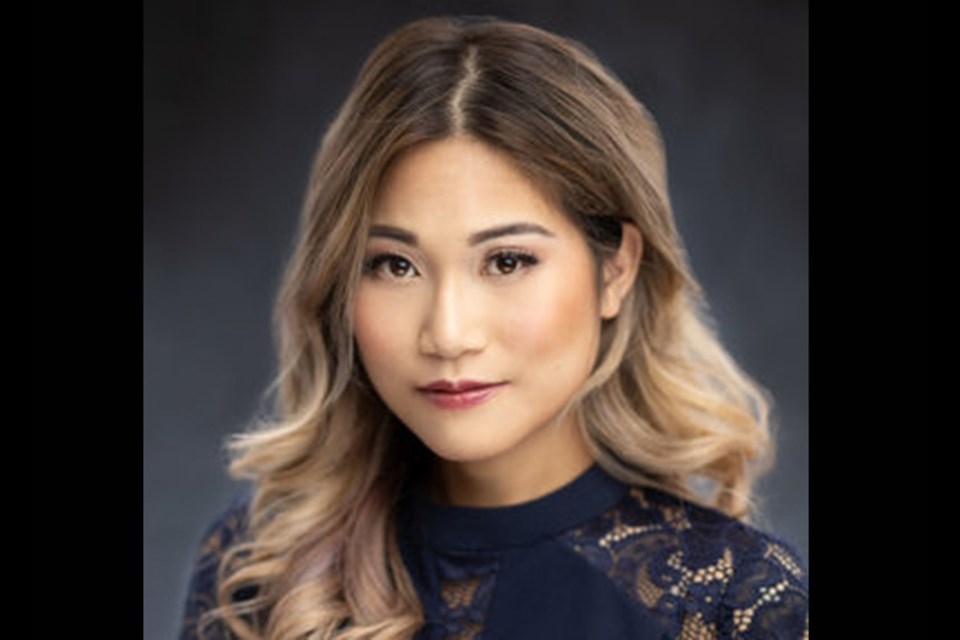Lindsay Wong, a Pinetree Secondary graduate who grew up in Coquitlam and now calls Burnaby home, teaches creative writing at the University of Winnipeg.
A former hockey player with the Tri-Cities Predators, Wong debuted The Woo-Woo: How I Survived Ice Hockey, Drug Raids and Demons, and My Crazy Chinese Family, a memoir that made the finals for Canada Reads in 2019.
That year, she also came out with a young adult novel called My Summer of Love and Misfortune.
And last month, the UBC and Columbia University graduate released a fictional work titled Tell Me Pleasant Things about Immortality — a collection of 13 short stories that delve into the family secrets and inherited traumas of immigrants.
Like Woo-Woo, the book is receiving critical acclaim.
The Tri-City News spoke with Wong; here’s an edited transcript of the interview:
- How often do you return to Coquitlam?
"I was there for Christmas and I’ll be back in April for some events. My parents live in Coquitlam."
- How did growing up in Coquitlam influence your writing?
"I had a very structured childhood. There were always a lot of activities: hockey, school, piano lessons. I didn’t start writing until UBC. At Pinetree, Ms. McNeill taught creative writing. I loved her class."
- Why do you write?
"I think it’s really to make sense of whatever I’m feeling or thinking at that moment. For a writer, there’s a lot going on in your brain, so it’s a good way to explore themes. For this latest collection of immigrant horror stories, I really wanted to write about diaspora and Chinese immigrants."
- How do you write?
"I can write anywhere. I find chunks of time whenever I have a break. I wish I was a full-time writer; I’m not. I teach, I go to faculty meetings so whenever there’s time, I sit down and craft something. There’s a lot of revision, a lot of things get thrown out, but hopefully there’s a story in there."
- Where do you write?
"I prefer to write at home in my pyjamas. I’m usually in my bed. I have my snacks. I have my coffee. It’s kind of a mess. I have a MacBook. Somedays, there’s no time for writing. I tell my students, 'Not everyone can write everyday and that’s really fine. It’s what works for you.'"
- Why did you move to fiction for this new book?
"I’ve always been interested in telling ghost stories and horror stories. There’s a thing about memoir that keeps you confined. You have to know facts. You have to do a lot of research, whereas fiction, you can take metaphors and made-up characters and go even deeper with ideas that you’re interested in."
- Is it harder to write fiction?
"I think so because when you’re writing non-fiction or memoir, for example, you are really manipulating events. The story is told for you and your job is to structure it so it’s compelling for your readers. But with fiction, there’s no plot. You have to completely invent a narrative from scratch. You have to really think about your characters and the stories you want to tell."
- What are you working on now?
"I have a novel. It’s about these bridesmaids who sell their soul to a demon bride by accident. It’s a satire but also a comedy. I remember being asked to be a bridesmaid. I don’t recommend it. They should outlaw it. There’s no such thing as demon brides but there are bridezillas, so I do draw on certain incidents in real life. I’m supposed to hand in the draft in August for publication next year."
- Any words of wisdom for emerging writers?
"Be persistent. Listen to that voice in your head that says, 'This is the story that I want to tell.' Write stories that you should not write because that’s where we’re supposed to go as writers and artists."
- What are you currently reading?
"A lot of friends’ manuscripts. I’m listening to a lot of audio books like Jen Sookfong Lee’s Superfan; it’s a brilliant exploration of being Chinese. I have Blackmail and Bibingka by Mia P. Manansala and A Thousand Ships by Natalie Haynes. I listen to audio books a lot because I tend to read a lot of student manuscripts. I need that audio release. You can let the story unfold. As a writer, when you see a sentence, you always dissect it. You ask, 'Can I do better?' But, for audio, you sit back and enjoy, and live in the story."
Lindsay Wong will be at the City Centre branch of the Coquitlam Public Library (1169 Pinetree Way) on April 15 from 1:30 to 3 p.m.
Her books will be available for purchase.
To register for her book reading and discussion, you can visit the Coquitlam Public Library's website.





